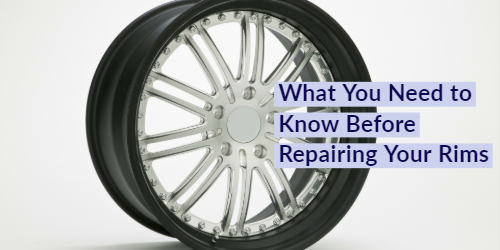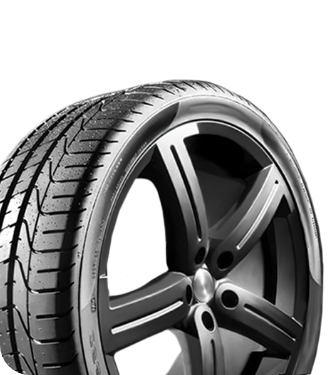

Wheel Materials 101: Steel, Alloy, and Beyond
Wheels |The choice of wheel material is a significant decision for any auto enthusiast. It impacts not only the aesthetic appeal of your vehicle but also its performance, handling, and safety.
Today’s market offers a variety of materials, each with unique benefits and drawbacks. If you’re looking to learn more about wheel materials, you’ve come to the right place. Below, we explore the basics and benefits of wheel materials like steel, alloy, and beyond.
Steel Wheels
Steel wheels have long been the go-to choice for many vehicle owners due to their durability, cost-effectiveness, and straightforward manufacturing process.
Historically, steel was the first material to be widely used for car wheels, dating back to the earliest days of the automotive industry. This long-standing tradition underscores steel’s reliability and the confidence manufacturers and drivers alike have placed in it over the decades.
Although modern advancements have introduced a variety of materials into the wheel manufacturing sector, steel wheels remain remarkably common, especially among trucks and utility vehicles where strength and affordability are paramount. Friendly and trustworthy, steel wheels continue to hold their ground in a rapidly evolving market.
The Advantages and Disadvantages of Steel Wheels
People widely celebrate steel wheels for their exceptional durability and robust strength. They are the ideal choice for withstanding severe environmental conditions, which is why drivers navigating snowy terrains often prefer them. Their notable resistance to damage from corrosive salt and abrasive ice makes them exceptionally reliable during winter months.
The affordability of steel is also a significant advantage, offering a cost-effective solution for car enthusiasts who are mindful of their budgets.
Despite these benefits, the substantial weight of steel wheels can lead to a decrease in fuel efficiency, as the extra mass requires more energy to move. This added weight can also impede the vehicle’s handling capabilities, potentially affecting maneuverability and the overall driving experience.

Alloy Wheels
Alloy wheels, made from an amalgamation of aluminum or magnesium with other metals, stand out for their combination of strength and lightweight properties. They offer enhanced performance by reducing unsprung mass, thus improving handling and fuel efficiency. Additionally, alloys dissipate heat more effectively, providing a performance edge, especially under demanding conditions.
Types of Alloy Wheels
Cast Alloy Wheels
The most common method of wheel manufacturing involves pouring molten metal into a mold to create cast wheels. These wheels are typically lighter than their steel counterparts, offering drivers a notable improvement in performance due to the reduced weight. Cast-alloy wheels strike a favorable balance between performance enhancements and overall cost, making them a popular choice among vehicle owners looking for an upgrade without breaking the bank.
Composite Alloy Wheels
A newer type of alloy wheel is a combination of materials such as carbon fiber and aluminum or magnesium. These wheels offer improved performance and a unique aesthetic appeal, making them popular among high-end sports car owners. However, their high cost and limited availability still make them a niche choice in the auto industry.
Forged Wheels
Forged wheels are rapidly becoming the preferred choice for performance and racing enthusiasts across the globe. Thanks to their unparalleled strength-to-weight ratio, these wheels offer significant improvements in handling, acceleration, and deceleration. This enhances the overall driving experience for anyone looking to maximize their vehicle’s performance.
This superior strength-to-weight ratio is a result of the intense manufacturing process that forged wheels undergo, making them not only lighter but also remarkably stronger than their cast counterparts. For anyone serious about optimizing their driving experience and pushing their vehicle to its limits, incorporating forged wheels into their setup is a decision that pays dividends in performance enhancement.

Carbon Fiber Wheels
The ongoing quest for lighter yet stronger wheels in the automotive industry has driven manufacturers to explore carbon fiber and other innovative materials extensively. Carbon fiber, renowned for its strength-to-weight ratio, offers an unparalleled reduction in weight. This significant decrease in unsprung mass not only enhances agility but also improves overall vehicle performance.
This cutting-edge technology, though, comes at a premium, positioning carbon fiber wheels as the most expensive option available on the market. Typically, carbon fiber wheels are for supercars and high-end sports cars, where performance is paramount and cost considerations are secondary.
Other Innovative Wheel Materials
Other materials, such as titanium and advanced composite materials, are also under continuous development. These materials promise to push the boundaries of wheel technology even further. Titanium, for instance, offers a unique combination of strength, corrosion resistance, and light weight, making it an attractive alternative for high-performance applications.
Meanwhile, wheel manufacturers are engineering advanced composites to provide benefits similar to carbon fiber but at potentially lower costs.
As research and development in these areas progress, the future of wheel technology looks promising, with the potential to deliver even lighter, stronger, and more cost-effective wheel solutions.
Considerations for Choosing the Right Wheel Material
When it comes to choosing the right wheel material for your vehicle, car owners should take several factors into consideration, including these:
- The vehicle’s purpose
- The driving conditions it will face
- The driver’s budget
Steel wheels stand out for their unparalleled toughness and cost-effectiveness, making them an ideal choice for everyday use and rugged conditions.
On the other hand, alloy wheels present a middle ground, offering a blend of performance, aesthetics, and affordability. They are lighter than steel, which can contribute to better fuel efficiency and handling, making them suitable for a wide range of vehicles, from family cars to sports cars.
Ultimately, the choice of wheel material should align with your vehicle’s use, expected driving conditions, and how much you’re willing to invest into enhancing your driving experience.
Find All Types of Wheels and Tires at RNR Tire Express
We hope our Wheel Materials 101 guide to steel, alloy, and beyond has helped clear things up regarding your wheel decisions. Choosing the right wheel material is more than a question of aesthetics—it’s about aligning your vehicle’s wheels with your performance needs, driving habits, and personal style. Whether you lean toward the durability of steel, the balanced performance of alloys, or the advanced benefits of forged and carbon fiber wheels, there’s a perfect match for every auto enthusiast.
At RNR Tire Express, we can help you outfit your vehicle with the exact type of wheels and tires your vehicle needs. Whether you’re looking for affordability, fuel efficiency, or performance, our tire shop in Lubbock has a wide selection to choose from and a staff of experts to help you decide. Browse our inventory online or schedule an appointment today!





